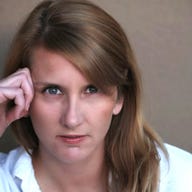Baby formula smuggling arrests spike in Hong Kong

Restrictions on how much powdered baby formula outbound travelers can carry out of Hong Kong has fueled a new smuggling trade.
Hong Kong began restricting outbound travelers to two 2-pound cans each of powdered baby formula on March 1. Since then, police and customs officials have cracked an illegal syndicate and arrested more people for smuggling milk powder than were detained all of last year for carrying heroin, reported Bloomberg.
The milk powder restrictions stem from mainland Chinese demand for food products they deem safe. Fear and distrust in the local food supply chain, caused by a series of scandals including the deaths of at least six babies due to tainted milk, has driven demand among mainland Chinese for imported products.
The UK, New Zealand and now Hong Kong have placed limits on milk sales after bulk purchases bound for China caused local shortages. Those limits haven't quashed demand in mainland China for milk powder made by foreign brands like Danone, Nestle and Mead Johnson Nutrition Co.
If anything, it's fueled interest in the products, which are viewed as luxury goods by mainland Chinese. Baby formula sales in China grew 29 percent to about $15.4 billion last year, according to industry analyst Mintel Group, reported Bloomberg.
Nestlé expanded its infant formula operations in 2008 to respond to the growing demand from consumers globally. Its market share continues to grow in China and South Asia, according to its latest quarterly earnings report.
Danone's baby nutrition sales grew more than 50 percent between 2007 and 2011, after the company's acquisition of Numico four years, according to information on the company's web site. The division's strongest position is in the Asia-Pacific region, which accounts for about 40 percent of its business, said Danone. Its largest market is China.
And sales of foreign baby formula are expected to grow, despite the price of foreign baby formula, which can cost more than double in China compared to buying the same product in Europe.
Photo: Nestlé
This post was originally published on Smartplanet.com
